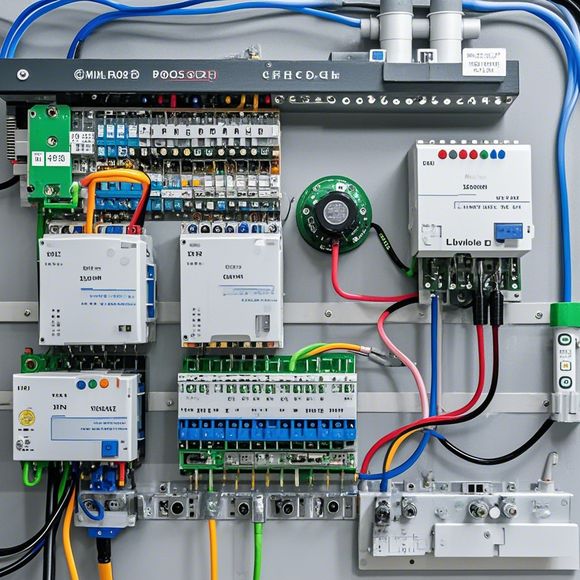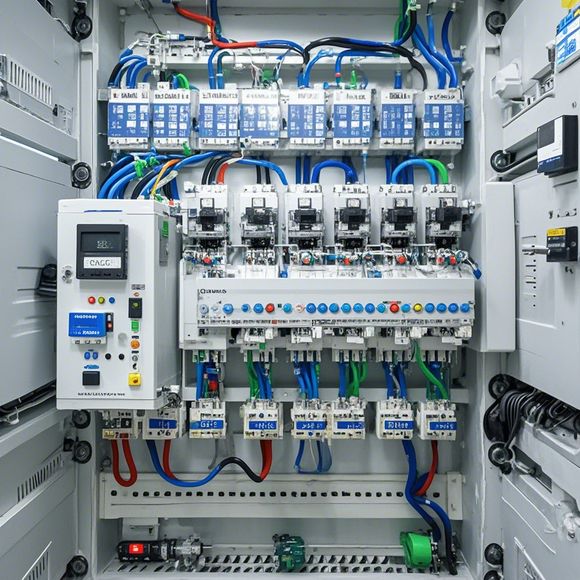The Role of Programmable Logic Controllers (PLC) in Modern Industrial Control
Introduction:
Hello, everyone! Today I am excited to share with you all about a crucial piece of technology used in the manufacturing and industrial world – the Programmable Logic Controller (PLC). Imagine if your factory had a mind of its own, capable of executing complex sequences and processes with precision and efficiency. That's exactly what a PLC does! It's like a super-intelligent assistant that helps you manage and control various systems and machinery within your industrial setup.
What is a PLC?
A Programmable Logic Controller (PLC) is a digital computer system designed to perform specific tasks in industries such as manufacturing, construction, and even transportation. Unlike traditional analog controllers, PLCs are designed to be programmable, meaning that they can execute instructions based on predefined rules and logic without the need for complex programming.

The Importance of PLCs
Now, let's talk about how critical these controllers are in today's modern manufacturing landscape. With PLCs, businesses can automate their operations, streamline processes, reduce downtime, and increase production output while minimizing waste. They enable smooth integration of new technologies into existing systems, leading to increased productivity and cost savings.
Key Features of PLCs
Let's dive deeper into the capabilities of these marvelous machines:
1、Programmability: PLCs are incredibly flexible and can be programmed to handle any type of task or process. Whether it’s turning off lights when a sensor detects motion or controlling the temperature inside a furnace, PLCs have got you covered.
2、Reliability: These controllers operate with high reliability due to their robust hardware and software design. They come with built-in safety features to prevent accidents and protect against electrical surges or other unexpected situations.
3、Integration: PLCs can seamlessly integrate with other automation systems like SCADA (Supervisory Control And Data Acquisition) systems, robotics platforms, and more. This means your industrial network can work together harmoniously, making it easy to monitor and control everything from one central location.

4、Security: As important as they are, PLCs are also designed with security features in place to prevent unauthorized access or malicious attacks. These controllers often come equipped with encryption and firewalls that ensure the integrity of data and prevent cyber threats.
Applications of PLCs
So, where do these amazing devices come in? Let's take a look at some real-life examples of how PLCs are being used across various industries:
1、Manufacturing: In manufacturing, PLCs are used to automate assembly lines, monitor inventory levels, and control machine tools. By using PLCs, companies can optimize workflows, reduce labor costs, and increase product quality.
2、Industrial Automation: In industries like mining, oil & gas, and construction, PLCs are used to control machinery, monitor pipelines, and maintain equipment. They help minimize downtime, improve safety standards, and enhance overall operational efficiency.
3、Healthcare: In hospitals and clinics, PLCs are used to manage patient monitoring systems, drug administration, and other critical processes. By automating these tasks, healthcare providers can save time and resources without sacrificing patient care quality.
4、Energy: In the energy sector, PLCs play a vital role in managing power grids, monitoring renewable energy sources, and ensuring safe operation of generators. They help reduce energy waste, minimize costs, and promote sustainable practices.

5、Agriculture: In agriculture, PLCs are used to monitor irrigation systems, track crop yields, and manage livestock. By automating these processes, farmers can optimize resource usage, reduce environmental impact, and increase food production efficiency.
Conclusion:
As we wrap up our discussion on the importance and applications of Programmable Logic Controllers (PLC), I can confidently say that these devices have transformed the way businesses operate in various industries. From improving efficiency and reducing downtime to enhancing safety and promoting sustainability, PLCs are the backbone of modern manufacturing. If you haven't yet considered incorporating these powerful tools into your business, now might be the perfect time! Remember, a little bit of planning can go a long way in unlocking the potential of automation and making your operations run like clockwork!
Content expansion reading:
Articles related to the knowledge points of this article:
PLC Controller for Manufacturing Automation
The cost of a PLC Controller: A Comprehensive Analysis
How to Use a PLC Controller for Your Business
PLC (Programmable Logic Controller) Control System Basics
Plumbers Rule! The Role of PLC Controllers in the World of Waterworks
PLC Controllers: A Comprehensive Guide to Understanding Their Prices